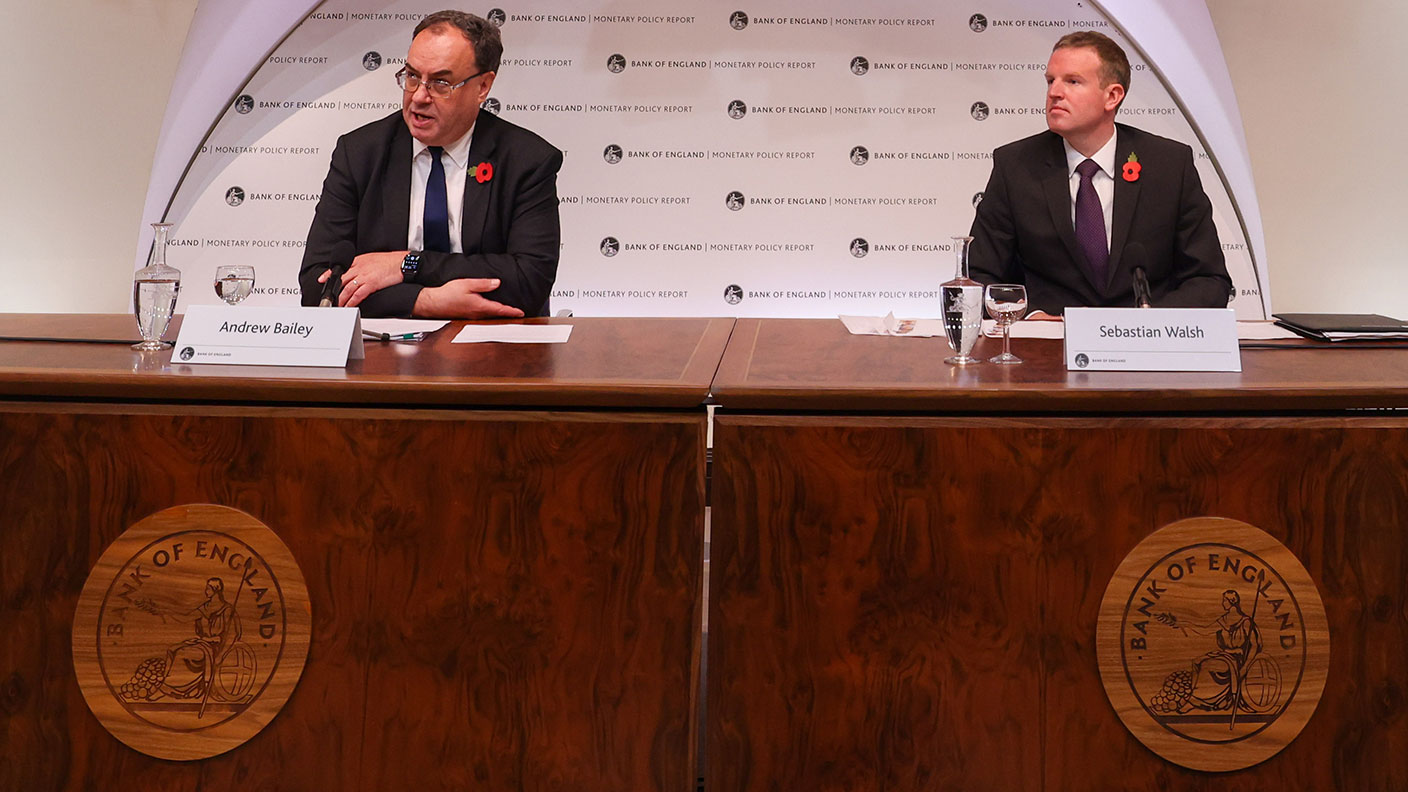The importance of thinking globally
Investors need to think globally to harness the next wave of innovation and ensure their portfolios are properly diversified. We look at how and why the world is changing.

Capital at risk. The value of investments and the income from them can fall as well as rise and are not guaranteed. Investors may not get back the amount originally invested.
After a lengthy period in which the fortunes of individual countries were broadly synchronised, the pandemic has created real differences in the prospects for individual countries. Shifting monetary policy, deglobalisation and shorter supply chains are changing the landscape. This is good news for investors, with global investing now holding greater potential for diversification and access to new sources of growth.
For several decades, the world has been moving inexorably closer. Companies have moved supply chains to the cheapest location, creating inter- dependence between nations. Geopolitics were, as far as is ever possible, benign. While China and the US would exchange tough words, it had little impact on the flow of goods and technology between the two countries.
MoneyWeek
Subscribe to MoneyWeek today and get your first six magazine issues absolutely FREE

Sign up to Money Morning
Don't miss the latest investment and personal finances news, market analysis, plus money-saving tips with our free twice-daily newsletter
Don't miss the latest investment and personal finances news, market analysis, plus money-saving tips with our free twice-daily newsletter
This world was already changing prior to the pandemic. Tensions between the US and China had begun to rise under the Trump administration, as US policymakers increasingly recognised that the trade deficit between the two countries was unsustainable. For its part, China had started to move to a model of growth that didn’t rely on the US consumer buying cheap goods, but was more self-reliant.
Pandemic: a permanent change
However, the pandemic has accelerated the diverging fortunes of individual countries. The IMF says that the economic impact of Covid-19 has varied depending on the “susceptibility of the population, the severity of mobility restrictions, the expected impact of infections on labour supply, and the importance of contact- intensive sectors”. The access to the vaccine, distribution and uptake has also been vitally important in how quickly economies have recovered. The IMF warns that the vaccine divide and variations in fiscal policy will make for hugely uneven outcomes in the years ahead. (1)
The pandemic has also seen a sea- change in international relations. It has brought about domestic tensions that have put policymakers under increasing pressure. It has changed labour relations, with shortages becoming commonplace and wages rising. It has been difficult to make goods, because of manufacturing interruptions, and then to get those goods across borders. Companies with long and complex supply chains have been hit hard and businesses have had to re-think their existing sourcing models. This is shifting the relationships between nations.
The pandemic has created other fissures. The inflationary pressures that have emerged in the wake of the crisis have had vastly different impacts on individual countries. This may depend on whether they are a commodity importer or exporter, how they source their energy, or the make-up of their economy.
This has influenced monetary policy. Developed markets – particularly the Eurozone - have been able to take a ‘wait and see’ response on inflation, while emerging markets have been pushed into a sharp increase in rates. Brazil, for example, has been forced to hike rates from 2% in January to 9.25% in December (2) as inflationary pressures have hit. This means these countries are further ahead in their monetary policy cycle and may see interest rates peak far sooner. China has already started to loosen its policy to stimulate its economy.
Innovation
Another argument for looking globally is that innovation is emerging in new places. In China, for example, the government has committed to increasing its research and development (R&D) investment by 7% each year, leading to interesting developments in key areas such as artificial intelligence, biotechnology, quantum computing, and robotics. (3)
India has seen a number of exciting new companies come to market in 2021. Dealogic reports that $15 billion was raised in Mumbai through initial public offerings, of which around 40% went to tech companies. (4)
For investors, it is not enough to focus on Silicon Valley when searching for the next innovative company.
What does this mean for investors?
This global dispersion should ultimately offer more opportunities for investors. The world had become increasingly correlated, making it harder to achieve true diversification by investing across borders. However, as the economic fortunes of different countries fracture, that diversification is easier to achieve. This is important both for capital growth and for income.
Finding these opportunities is not straightforward. Every country comes with its own idiosyncrasies. It takes a presence on the ground in individual regions to understand the strengths and weaknesses in each area and uncover the unique companies in each market. At BlackRock, our investment trust managers can call on analyst teams in every region across the world. We believe this gives us meaningful insight and helps our investors tap into some of the most exciting companies around the world.
Financial markets are entering a more complex time as the world emerges from the pandemic, inflationary pressures mount and the interest rate cycle starts to turn. Investors will need to cast their net widely for opportunities and draw from across the globe for diversification and innovation.
For more information on BlackRock’s range of investment trusts, please visit blackrock.com/its
(1) The Economist, October 2021
(2) Reuters, December 2021
(3) CNBC, March 2021
(4) CNN Business, December 2021
Risk Warnings
Past performance is not a reliable indicator of current or future results and should not be the sole factor of consideration when selecting a product or strategy. Changes in the rates of exchange between currencies may cause the value of investments to diminish or increase. Fluctuation may be particularly marked in the case of a higher volatility fund and the value of an investment may fall suddenly and substantially. Levels and basis of taxation may change from time to time.
Important Information
Issued by BlackRock Investment Management (UK) Limited, authorised and regulated by the Financial Conduct Authority. Please refer to the Financial Conduct Authority website for a list of authorised activities conducted by BlackRock.
BlackRock has not considered the suitability of this investment against your individual needs and risk tolerance. To ensure you understand whether our product is suitable, please read the fund specific risks in the Key Investor Document (KID) which gives more information about the risk profile of the investment. The KID and other documentation are available on the relevant product pages at www.blackrock.co.uk/its. We recommend you seek independent professional advice prior to investing.
The Company is managed by BlackRock Fund Managers Limited (BFM) as the AIFM. BFM has delegated certain investment management and other ancillary services to BlackRock Investment Management (UK) Limited. The Company’s shares are traded on the London Stock Exchange and dealing may only be through a member of the Exchange. The Company will not invest more than 15% of its gross assets in other listed investment trusts.
SEDOL™ is a trademark of the London Stock Exchange plc and is used under licence.
Net Asset Value (NAV) performance is not the same as share price performance, and shareholders may realise returns that are lower or higher than NAV performance.
Any research in this material has been procured and may have been acted on by BlackRock for its own purpose. The results of such research are being made available only incidentally. The views expressed do not constitute investment or any other advice and are subject to change. They do not necessarily reflect the views of any company in the BlackRock Group or any part thereof and no assurances are made as to their accuracy.
This material is for information purposes only and does not constitute an offer or invitation to anyone to invest in any BlackRock funds and has not been prepared in connection with any such offer.
© 2022 BlackRock, Inc. All Rights reserved.
ID: MKTGH0322E/S-2050972-1/1
Get the latest financial news, insights and expert analysis from our award-winning MoneyWeek team, to help you understand what really matters when it comes to your finances.
MoneyWeek is written by a team of experienced and award-winning journalists, plus expert columnists. As well as daily digital news and features, MoneyWeek also publishes a weekly magazine, covering investing and personal finance. From share tips, pensions, gold to practical investment tips - we provide a round-up to help you make money and keep it.
-
 Should you buy an active ETF?
Should you buy an active ETF?ETFs are often mischaracterised as passive products, but they can be a convenient way to add active management to your portfolio
-
 Power up your pension before 5 April – easy ways to save before the tax year end
Power up your pension before 5 April – easy ways to save before the tax year endWith the end of the tax year looming, pension savers currently have a window to review and maximise what’s going into their retirement funds – we look at how
-
 Inflation forecasts mean interest rates should be on the rise – so why aren’t they?
Inflation forecasts mean interest rates should be on the rise – so why aren’t they?Opinion With inflation forecast to hit 5% next year, we might expect interest rates to be rising, says Merryn Somerset Webb. But central banks are holding off. Why?
-
 Don’t believe the forecasters
Don’t believe the forecastersTutorials Analysts are always telling us what they think is about to happen to economies or equities, says Andrew Van Sickle. Investors should ignore them.

